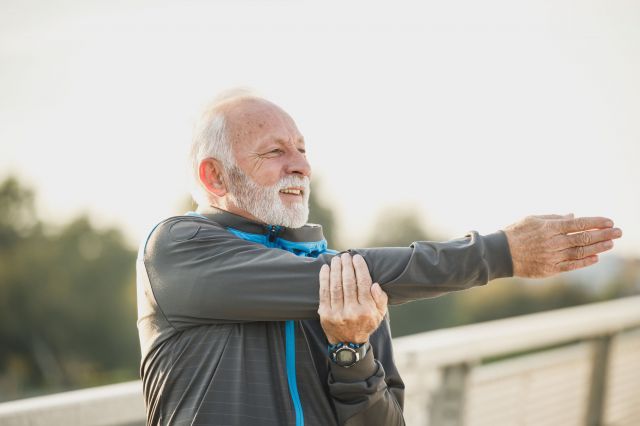Can You Turn Back Time? A Guide to Healthy Aging
Healthy Ageing - Exercises for Seniors
INFORMATIONAL


Ageing Gracefully
As we transition into our later years, prioritizing healthy habits becomes even more important. Maintaining physical and mental well-being is key to enjoying a fulfilling and independent life. Let's explore the importance of staying active, and consider some strategies to keep your mind sharp.
Why Staying Active Matters
Physical activity isn't just about aesthetics; it's a cornerstone of healthy aging. Studies show that staying active can greatly improve your quality of life. Here's how:
Reduced Disease Risk: Regular exercise lowers the risk of chronic conditions like heart disease, type 2 diabetes, and some cancers.
Enhanced Mobility and Independence: Physical activity helps maintain muscle strength, flexibility, and balance, reducing the risk of falls and increasing your ability to live independently.
Boosted Mood and Cognitive Function: Exercise can alleviate symptoms of depression and anxiety, improve cognitive function, and even sharpen memory.
Incorporating Movement into Your Routine
Even slight changes in your daily activity can yield significant benefits. Here are some excellent exercise options for seniors:
Walking: Aim for at least 30 minutes of brisk walking most days of the week. Consider joining a walking group for added social interaction.
Strength Training: Building muscle mass helps maintain mobility and prevent falls. Start with light weights or bodyweight exercises like squats and lunges.
Balance Exercises: Simple activities like heel-toe walking or standing on one leg can significantly improve your balance and coordination.
Low-Impact Activities: Swimming, water aerobics, and yoga are gentle on the joints and offer a full-body workout.
Finding the Right Exercise Fit
Remember, consulting your doctor before starting a new exercise program is crucial, especially if you have any existing health conditions. They can help you create a safe and effective routine tailored to your needs and abilities.
The Power of a Balanced Diet
A nutritious diet fuels your body and mind throughout life. The NIA highlights the importance of focusing on these key dietary components:
Fruits, Vegetables, and Whole Grains: These powerhouses provide essential vitamins, minerals, and fiber for optimal health.
Lean Protein Sources: opt for fish, poultry, beans, and lentils to meet your protein needs while limiting red meat.
Healthy Fats: Include healthy fats like those found in avocados, nuts, and olive oil in your diet.
Avoid Processed Foods and Added Sugars: These contribute to health problems like diabetes and heart disease, so consume them minimally.
Eating a balanced diet provides your body with the essential nutrients it needs to function optimally. This can help you maintain a healthy weight, manage chronic conditions, and boost your energy levels.
Stay Sharp: Activities to Keep You Mentally Active
Mental well-being is just as important as physical health. Here are some tips to keep your mind sharp, inspired by research on healthy aging:
Lifelong Learning: Engage in activities that challenge your mind like taking a class, learning a new language, or reading stimulating books.
Social Connection: Regularly connect with friends and family. Social interaction reduces feelings of isolation and has a positive impact on mental health.
Brain-Training Activities: Participate in activities that stimulate cognitive function such as puzzles, crosswords, Sudoku, or brain teasers. Many brain-training apps are available for download on tablets.
Creative Pursuits: Engage in creative hobbies like painting, writing, or playing music. These activities can improve cognitive function and boost mood.
Volunteering: Giving back to your community through volunteer work provides a sense of purpose and social interaction, both are beneficial for cognitive health and help prevent isolation.
Embrace a Vibrant Life
By incorporating a healthy lifestyle with regular physical activity, a balanced diet, and activities that keep your mind sharp, you can pave the way for a fulfilling and independent life in your golden years. Remember, it's never too late to make changes, and even small improvements can make a big difference. Take charge of your health today and start living your best life!
References:
National Institute on Aging. (n.d.). What Do We Know About Healthy Aging? Retrieved from NIA website
Basak, C., Rajah, M. N., & Loftus, E. F. (2007). Can Video Game Play Enhance Cognitive Function in Older Adults?. Psychological Science, 18(1), 67-71.
Verghese, J., et al. (2003). The Relationship Between Leisure Activities and Cognitive Decline in Older Adults. Journal of the American Geriatrics Society, 51(7), 1006-1010.
Post, S. G. (2015). The Benefits of Volunteering for Mental and Physical Health. The Gerontologist, 55(5), 960-974.


